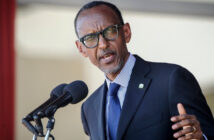The German parliament on Wednesday elected Angela Merkel for the 4th term as Chancellor.
Angela Merkel’s Christian Democrats will govern with the Social Democrats in a grand coalition. Merkel’s confirmation was very tight, she scaled through by mere 9 votes.
Merkel’s election by Germany’s lower house of parliament, the Bundestag, end 171 days of waiting after the national election on September 24, 2017. Merkel was elected by deputies from her own conservative CDU-CSU and her junior coalition partners, the Social Democratic Party (SPD).
In all, 364 members of the Bundestag voted for Merkel, while 315 voted against her. There were nine abstentions, and 21 parliamentarians were either absent or didn’t cast valid ballots.
That’s hardly a ringing endorsement considering that the grand coalition accounts for 399 votes in the Bundestag. It was more or less a repudiation of her leadership. The biggest gainer in the German election was the far-right populist Alternative for Germany (AfD) party, which took 12.6 percent of the vote, confining Merkel’s CDU to 33 percent of the vote, ahead of the SPD with 20.5 percent, a far cry from the results of 2013.
Merkel heads over to Berlin’s Bellevue Palace to be sworn in by German President Frank-Walter Steinmeier as Chancellor for the 4th term.




